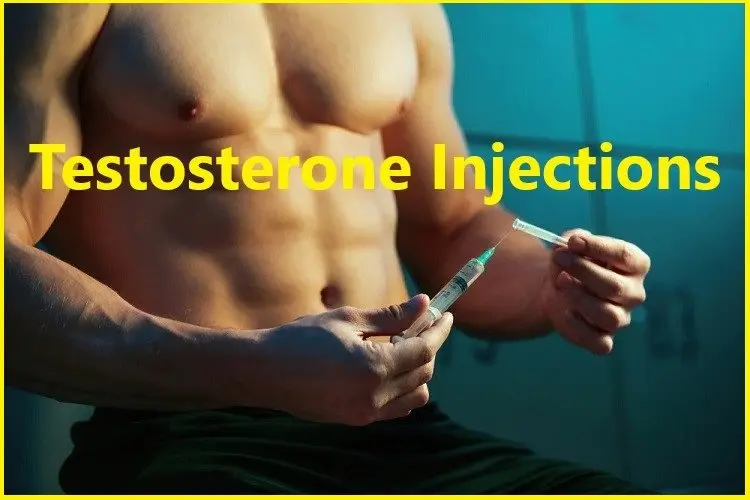Testosterone Injections
 Testosterone Injections
Testosterone Injections
Testosterone injections are typically administered into the muscle, a process known as an intramuscular injection, most often into the buttocks, thigh, or upper arm. The procedure should always be performed using a sterile technique to prevent infections and other complications. It's crucial that individuals receiving testosterone injections receive proper instruction from healthcare professionals on self-injection techniques if they are managing their treatment from home. This instruction usually encompasses selecting and rotating injection sites to prevent tissue damage, proper syringe disposal, and recognizing signs of complications.
Testosterone Injection Results
The results of testosterone injections can vary depending on the individual's condition, dosage, and response to treatment. Generally, individuals may start noticing improvements in symptoms of testosterone deficiency within a few weeks of beginning therapy. These improvements can include increased energy levels, higher libido, improved mood, increased muscle mass and strength, and reduced fat mass. For those with hypogonadism or similar conditions, testosterone injections can significantly enhance quality of life. Additionally, these injections can support the development of secondary sexual characteristics in transgender men as part of hormone therapy.
Testosterone Injection Side Effects
While testosterone injections can offer many benefits, they are not without potential side effects. The risks and side effects depend on individual health conditions and the dosage of testosterone used. Some common side effects include site reactions like pain, redness, and swelling, increased red blood cell count which can lead to complications like blood clots, changes in cholesterol levels, and potential increase in risk of heart attack or stroke. Other effects might include mood swings, acne, and an increase in body hair. Men might experience testicular shrinkage, decrease in sperm production, and an increase in the risk of prostate conditions. It's imperative to closely monitor individuals on testosterone therapy for side effects and adjust treatment as necessary.
Testosterone Injection Uses
Apart from treating testosterone deficiency and its symptoms, testosterone injections have a range of other applications. In the context of gender affirming therapy, testosterone injections are a cornerstone for transgender men and nonbinary individuals seeking masculinization. In sports and bodybuilding, though controversial and often illegal without a prescription, testosterone injections have been used to enhance muscle growth and athletic performance. Finally, testosterone therapy is being researched for its potential effects on mood disorders, cardiac health, and protection against muscle wasting in older adults, although these uses are not yet universally accepted or recommended in medical practice.
Conclusion
Testosterone injections represent a critical treatment modality for individuals dealing with low testosterone and its myriad effects. While offering substantial benefits for physical, emotional, and sexual health, the administration of testosterone is not without its risks and requires careful consideration and monitoring by qualified healthcare professionals. As research advances, our understanding of testosterone and its implications continues to evolve. It remains essential for individuals considering or receiving testosterone therapy to engage in open, informed discussions with their healthcare providers to ensure they fully understand the potential benefits and risks, tailoring treatment to their specific health profiles and needs.
References:
- Testosterone Injection: MedlinePlus
- Testosterone Injection - DRUGS.COM
- Testosterone Enanthate for Sale
Articles

What is Testosterone? Testosterone is a hormone found in men and women that plays a vital role in many bodily functions. It is most commonly known for promoting male characteristics such as muscle mass, facial hair, and a deep voice. In women, it has a protective role in their health and helps regulate the menstrual cycle. Testosterone is a hormone produced by the human body that helps regulate a variety of bodily functions.

Testolone, also known as RAD140, is a novel non-steroidal selective androgen receptor modulator (SARM) developed by Radius Health Inc. It is believed that Testolone has the anabolic properties similar to testosterone while still maintaining the safety profile. Testolone has shown to be much more effective than many traditional anabolic steroids. Testolone is a very potent muscle building agent and is typically used as a...

If an individual is expecting help up the body with dynamic steroids, the individual necessities to consider the best steroids open on the lookout so they can ensure that they get the consistent and weighty body that can be presented on the weight preparing stages. To help up the body fittingly, people need to consider eating up steroids over the course, and in that connection, one needs to consume Dianabol or Dbol to help up the body.
Customers Feedbacks
Please leave your feedback on products or service below.
Thank you beforehand.


